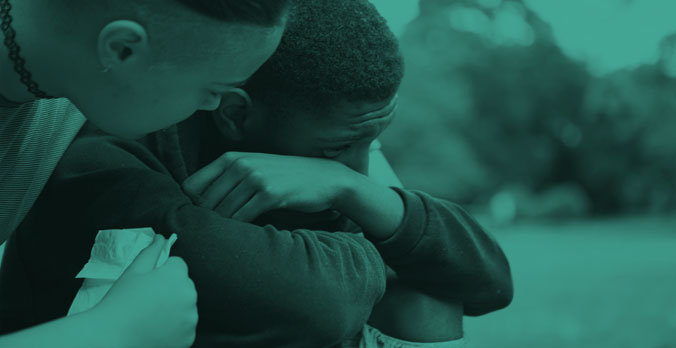Exploitation is to treat someone unfairly or use a situation to gain an unfair advantage for oneself or to benefit from their work or activity. Exploitation of children can take many forms, for example, using a child to get money for someone else, or using a child to distribute drugs to other people. It can mean getting a child to do something sexual, even when the child or young person may feel that they are willingly taking part.
What is Child Sexual Exploitation?
Child Sexual Exploitation is when a boy or a girl is taken advantage of by someone else, including being made or tricked into doing something sexual. This sometimes involves getting something in return like love, affection, money, drugs or alcohol, phones or gifts. It is not always possible to recognise that exploitation is taking part, as sometimes young people may feel that the sexual relationship is equal, even if it is not.
Child Sexual Exploitation can take place in person or online. A young person might even be encouraged to take part in exploitation by someone in their own age or friendship group who may already be a victim. Victims may not always see themselves as victims, this is because they feel they are in a grown-up relationship and are taking responsibility for their own actions. At the beginning the young person might feel like they are in control of the situation, but blackmail, violence, controlling behaviour and intimidation will often be used to force them to continue to take part in sexual activities.
Young people and children can be exploited by a person they’ve never met in real life, or only met for a short time. Child Sexual Exploitation can take place through online grooming on chat rooms, social media and online gaming.
The perpetrator may encourage the young person to take part in activities including:

- Sexting
- Performing sexual acts via webcams
- Posting nude photographs of themselves online
- Viewing inappropriate content online
- To meet up with the perpetrator in real life
When a child or young person feels that they no longer want to talk with this person, the perpetrator might then use threats to share sexual images of the young person with their family, friends or wider community.
Child Sexual Exploitation is not limited to particular areas, backgrounds, ages, genders or sexual orientation, but children who are already vulnerable may be more likely to be targeted.
What are some of the signs of Child Sexual Exploitation?
- Truanting from school, coming home late/going missing for short periods or staying out all night without explanation.
- A sudden change in appearance or dress, moods and behaviour.
- Drug or alcohol misuse and being in trouble with the police or criminal behaviour.
- Becoming secretive, not able to communicate with family members, being angry, being scared or isolating themselves from family, friends and professionals.
- Having money, receiving gifts or having personal items that they are unable or do not wish to say who or where they are from.
- Mixing with older people or a new friendship group and perhaps being seen in their cars.
- Having, or starting a relationship with a much older boyfriend or girlfriend.
- Having sexually transmitted infections, or having several pregnancies or terminations.

Nobody should be forced or coerced into doing things sexually for someone else’s gain whether this is against their will or not. It’s really important to understand that, whatever has happened it is not your fault. You may be feeling, cross, angry, scared, confused or low in mood. It’s important that you don’t feel you have to cope with these feelings alone. Tell a friend or adult you trust. It could be a family member or teacher, youth worker, school nurse, GP or someone else you can trust.
There are people who are able to help so please don’t be afraid to ask for help. If you are worried about yourself or someone else please contact the Multi-Agency Safeguarding Hub in your area:
How can you help your child to keep themselves safe from Exploitation?
- Talk to your child about the importance of consent, and what it means to be in a healthy relationship.
- Encourage your child to follow their instincts; when they get a sense of unease about a new friend or situation, they will know to trust this feeling and avoid that person.
- Warn them to not trust people they don't know, either in person or online, even if they seem friendly.
- Make sure your child understands to never give strangers their personal details or arrange to meet them. Personal details include full name, home address and what school they go to.
- If you have difficulty talking with your child, consider seeking help from a parenting course or counsellor so that you can develop an open relationship with each other.
- Reassure your child that you are there for them no matter what, and it’s not their fault if they have been exploited.
- Additional information for parents can be found at PACE or download this Parents and Carers Support Pack (PDF) which covers all aspects of Child Exploitation.
If you are worried about your own, or someone else’s child please contact the Multi-Agency Safeguarding Hub in your area:

